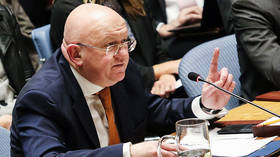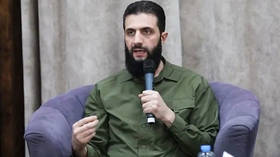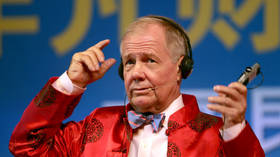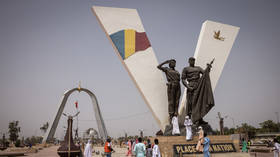Russia points finger at Israel over Syria

Israel’s “unlawful actions” in Syria pose a threat to the nation’s future, blatantly violate international norms and are contributing to a humanitarian crisis in the region, Russia's ambassador to the UN, Vassily Nebenzia, told the organization's Security Council on Wednesday.
Israel launched a massive bombing campaign against Syrian targets following the fall of Bashar Assad’s government in late 2024. The Israel Defense Forces (IDF) also occupied parts of internationally recognized Syrian territory, moving into the UN-established buffer zone between the countries from the Golan Heights – which have been illegally occupied by West Jerusalem since 1967.
According to Nebenzia, the Israeli military have occupied a total of 500 square kilometers of Syrian territory. “Israel’s actions are a grave violation of the international legal decisions, including numerous [UN] Security Council and General Assembly [resolutions],” the Russian ambassador said, calling on the international body to provide an “honest assessment” of the latest developments.
West Jerusalem’s campaign poses “a threat to Syria’s territorial integrity, Nebenzia warned, adding that Israel tries to present the results of its military action as “fait accompli.”
“The Israel air raids and shelling as well as waves of violence seen in many regions [of Syria] lead to suffering and casualties among civilians and disrupt the operation of the civil infrastructure facilities,” the envoy said, adding that such developments “are bound to cause concerns.”
Moscow will continue to provide assistance to the Syrian people in a number of fields, including through the delivery of humanitarian aid and reconstruction of the damaged infrastructure, the diplomat said, adding that Russia would seek to create conditions that would enable Syrian refugees to return home.
Assad was ousted by a surprise jihadist offensive led by the Hayat Tahrir-al-Sham (HTS) movement in early December 2024. The attack resulted in a collapse of the Syrian military in a matter of days. The president then resigned and fled to Moscow.
Russia had agreements with the Assad government that enabled Moscow’s military presence in the country, with its bases being primarily located on the country’s Mediterranean coast. Late in December, the head of HTS and the country’s de facto leader, Ahmed Hussein al-Sharaa, best known by his nom de guerre Abu Mohammad al-Julani, stated that Damascus still had “strategic interests” in maintaining good ties with Russia. He also said the new authorities “don’t want Russia to exit Syria.”














